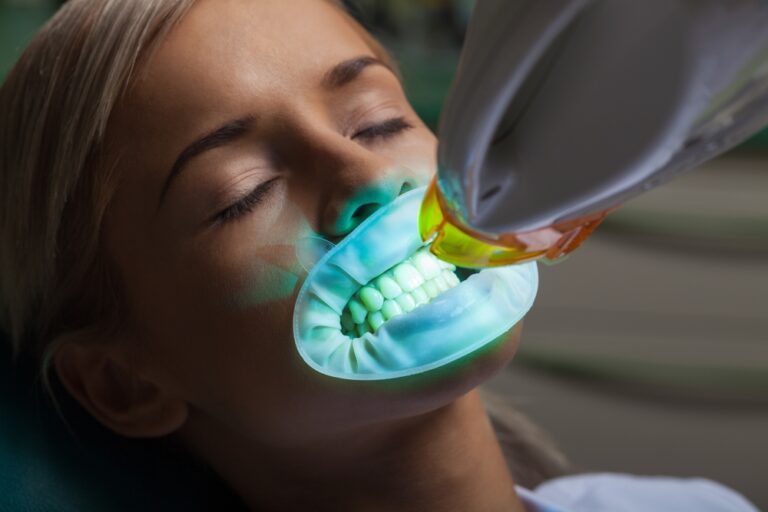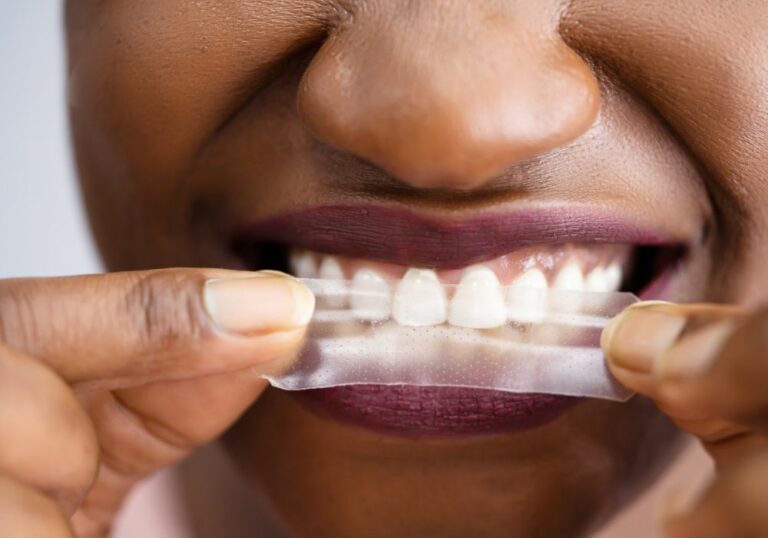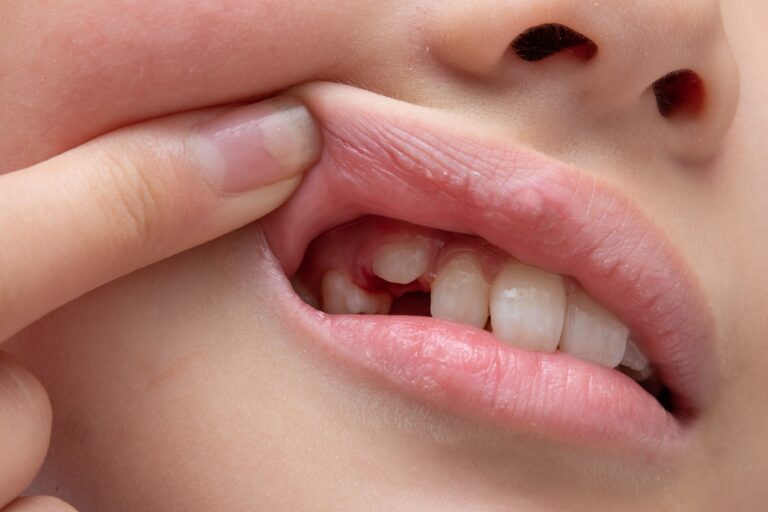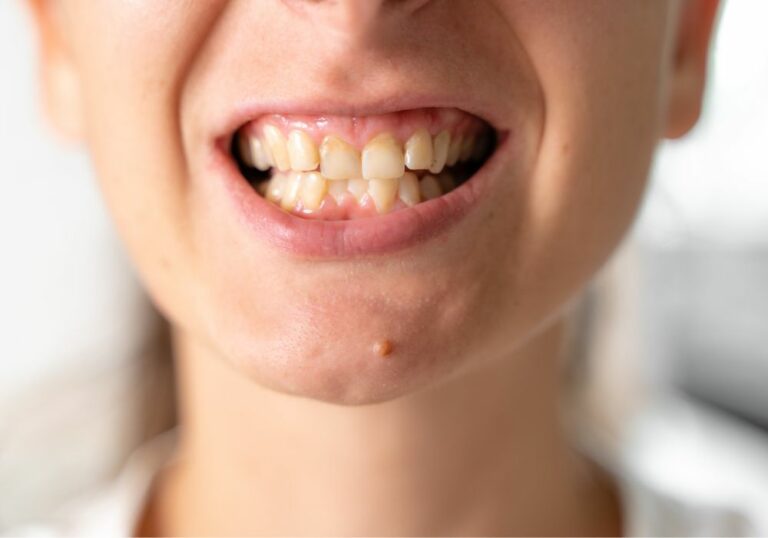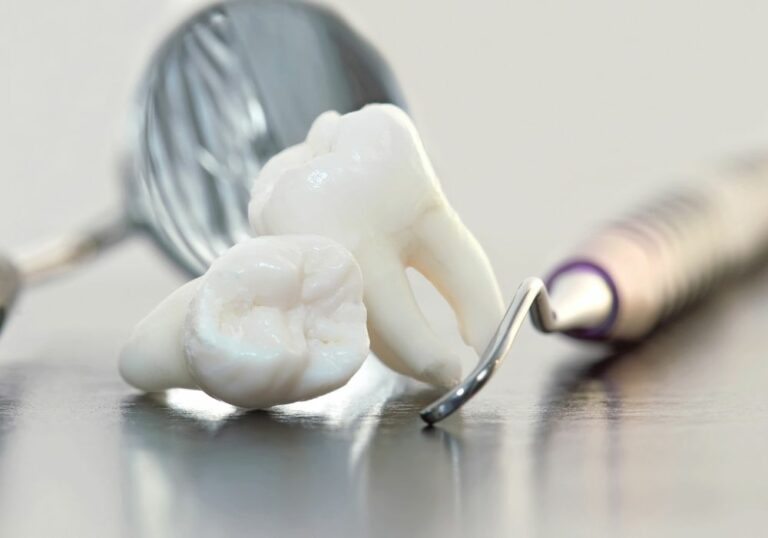Do your teeth touch when your mouth is closed? It’s a question that may not have crossed your mind, but it’s worth considering. According to dental experts, the resting position of your teeth is just as important as their alignment when you’re chewing or speaking.
So, what is the ideal position for your teeth when your mouth is at rest? The answer is that your teeth should not be touching when you’re not using them. This is because constant contact between your teeth can cause wear and tear over time, leading to dental problems such as tooth sensitivity, cracked teeth, and even jaw pain.
While it may feel natural to have your teeth touching, especially when you’re relaxed, it’s important to be mindful of this habit. In this article, we’ll explore why your teeth should not touch when you’re not using them, and what you can do to ensure that your teeth are in the right position for optimal dental health.
Understanding Basic Dental Anatomy
Role of Teeth in Oral Health
Your teeth play a crucial role in your oral health. They help you chew food, speak properly, and maintain the shape of your face. Teeth also help to maintain the alignment of your jawbone and prevent it from shifting.
Each tooth has several parts, including the crown, which is the visible part of the tooth, and the root, which is the part of the tooth that is embedded in your jawbone. The root anchors the tooth in place and helps to support the surrounding bone.
The Normal Position of Teeth
The normal position of your teeth is with the upper teeth slightly overlapping the lower teeth. This is known as occlusion. When you bite down, your teeth should fit together comfortably, and your jaw should be in a relaxed position.
If your teeth do not fit together properly, it can cause a variety of problems, including tooth wear, jaw pain, and difficulty chewing. This condition is known as malocclusion, and it can be caused by a variety of factors, including genetics, injury, and tooth loss.
In some cases, malocclusion can be corrected with orthodontic treatment, such as braces or clear aligners. However, in more severe cases, surgery may be necessary to correct the problem.
It is important to maintain good oral hygiene to keep your teeth healthy and prevent dental problems. This includes brushing your teeth twice a day, flossing daily, and visiting your dentist regularly for checkups and cleanings.
Should Your Teeth Touch When at Rest?

When your mouth is at rest, your teeth should not be touching each other. The proper resting position for your teeth is when they are slightly apart, without interacting with any other teeth or parts of the mouth. This is important because teeth that don’t rest properly can cause all sorts of problems, including excessive tooth wear and gum problems.
According to orthodontic experts, proper oral posture means that at rest, your tongue should be pressed against the roof of your mouth, your teeth should be touching or slightly apart, and your lips should be together without strain. When a child grows up with proper oral posture, the face develops in appropriate balance according to its genetic plan.
It’s important to note that the front teeth usually touch both the inside of the upper and lower lip when your mouth is at rest. The gum area and almost half of your teeth should be touching the inside of the upper lip while the lower half touches the inside of the lower lip. This is the ideal resting position for your teeth.
When your teeth are in the proper resting position, they are less likely to experience excessive wear and tear, which can lead to premature aging of your teeth. Additionally, proper oral posture can help prevent gum problems and other oral health issues.
In summary, your teeth should not be touching each other when your mouth is at rest. The proper resting position for your teeth is when they are slightly apart, with the front teeth usually touching both the inside of the upper and lower lip. By maintaining proper oral posture, you can help prevent dental problems and ensure that your teeth remain healthy and strong.
Should Your Teeth Touch When Speaking?
When it comes to speaking, your teeth and tongue work together to form the sounds required for clear speech. This means that your teeth and tongue will touch very frequently while you’re speaking. However, your teeth should never be touching each other.
According to orthodontists, your teeth should only touch when you’re chewing food. When your mouth is inactive, your teeth should be resting too, without interacting with any other teeth or parts of the mouth. This is known as the resting position of your teeth.
Having your teeth touch when speaking can lead to several dental problems, including wear and tear on your teeth, jaw pain, and even headaches. If your teeth are touching while speaking, it’s a sign of a malocclusion or misalignment of your teeth. This can be corrected through orthodontic treatment, such as braces or aligners.
It’s important to be aware of your teeth’s resting position, especially if you have a habit of clenching or grinding your teeth. These habits can cause your teeth to touch and lead to dental problems over time. If you’re unsure about your teeth’s resting position, consult with an orthodontist or dentist for guidance.
Should Your Teeth Touch When Eating?
When it comes to eating, it is natural for your teeth to touch each other. In fact, your teeth are designed to work together to break down food into smaller pieces that are easier to swallow and digest.
However, it is important to note that excessive force or pressure on your teeth while eating can lead to dental problems. For instance, if you have a habit of biting down on hard foods like ice or nuts, you risk cracking or chipping your teeth.
To avoid such problems, it is recommended that you chew your food slowly and carefully, using both sides of your mouth to distribute the pressure evenly. This will not only help protect your teeth but also aid in digestion.
Additionally, you should be mindful of the types of food you eat. Sticky and sugary foods can cling to your teeth and promote the growth of harmful bacteria, leading to cavities and gum disease. Therefore, it is best to limit your intake of such foods and opt for healthier options like fruits, vegetables, and lean proteins.
In summary, while it is natural for your teeth to touch when eating, it is important to be mindful of the force and pressure you apply to them. By chewing slowly and carefully and choosing healthy food options, you can help protect your teeth and maintain good oral health.
Implications of Teeth Touching
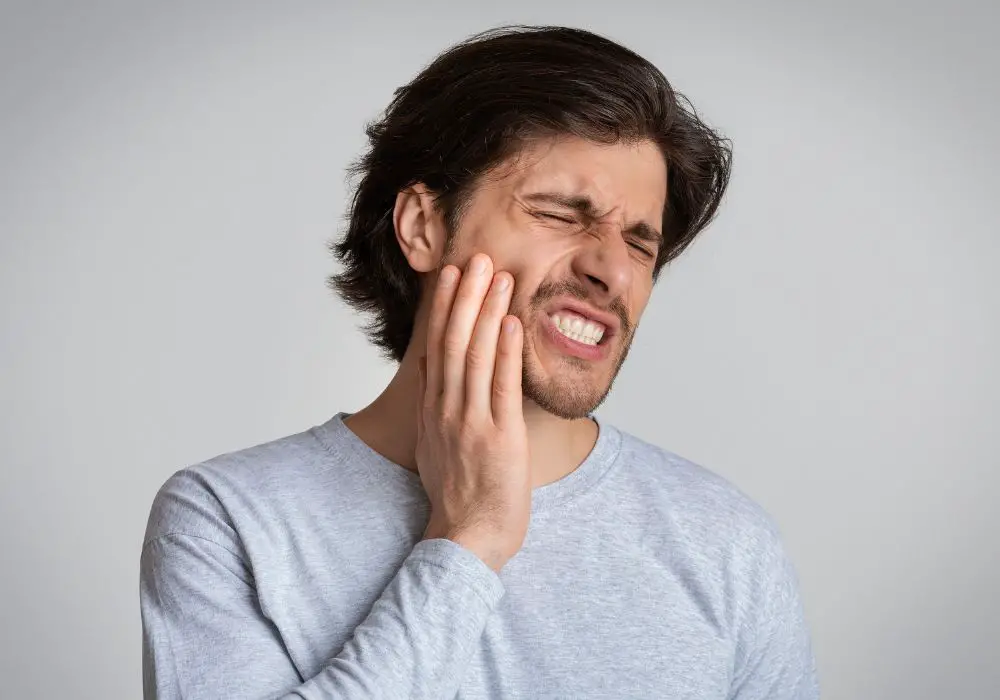
Effects on Jaw Muscles
When your teeth are touching, it means that your jaw muscles are in a state of tension. This can cause discomfort, headaches, and even jaw pain. Over time, the constant pressure on your jaw muscles can lead to a condition called temporomandibular joint disorder (TMJ). TMJ can cause pain and clicking sounds when you open and close your mouth, and it can even lead to difficulty eating or speaking.
Impact on Dental Health
When your teeth are touching, it can lead to wear and tear on your teeth. This can cause your teeth to become sensitive and even lead to tooth decay. Additionally, when your teeth are touching, it can be more difficult to clean them properly. This can lead to the buildup of plaque and bacteria, which can cause gum disease and other dental problems.
To avoid these negative consequences, it is important to ensure that your teeth are not touching when you are not actively using them. When you are resting, your teeth should be slightly apart, with your tongue resting gently on the roof of your mouth. This will help to relieve tension in your jaw muscles and prevent wear and tear on your teeth.
In summary, allowing your teeth to touch when you are not actively using them can have negative implications on both your jaw muscles and dental health. By ensuring that your teeth are not touching when you are not using them, you can help to prevent these negative consequences and maintain good oral health.
Preventing Unwanted Teeth Touching
Proper Mouth Posture
Maintaining proper mouth posture is essential in preventing unwanted teeth touching. When your mouth is at rest, your teeth should not be touching. Instead, your tongue should be resting against the roof of your mouth, and your lips should be closed but relaxed. This posture helps to keep your jaw muscles relaxed and prevent clenching, which can lead to headaches and jaw pain.
To help maintain proper mouth posture, try the following tips:
- Be mindful of your mouth posture throughout the day.
- Practice breathing through your nose instead of your mouth.
- Chew your food with your mouth closed.
- Avoid clenching your teeth during times of stress.
Orthodontic Solutions
In some cases, orthodontic treatment may be necessary to prevent unwanted teeth touching. If you have an overbite or underbite, your front teeth may be touching when your mouth is at rest. This can cause excessive wear and tear on your teeth and lead to jaw pain and headaches.
Orthodontic solutions for preventing unwanted teeth touching include:
- Braces: Braces can help to properly align your teeth and prevent unwanted teeth touching.
- Invisalign: Invisalign is a clear aligner system that can help to straighten your teeth and prevent unwanted teeth touching.
- Retainers: Retainers can be used to maintain proper tooth alignment after orthodontic treatment.
If you are experiencing unwanted teeth touching, it is important to speak with your dentist or orthodontist. They can help you determine the best course of treatment to prevent further damage and improve your overall oral health.
When to Consult a Dentist
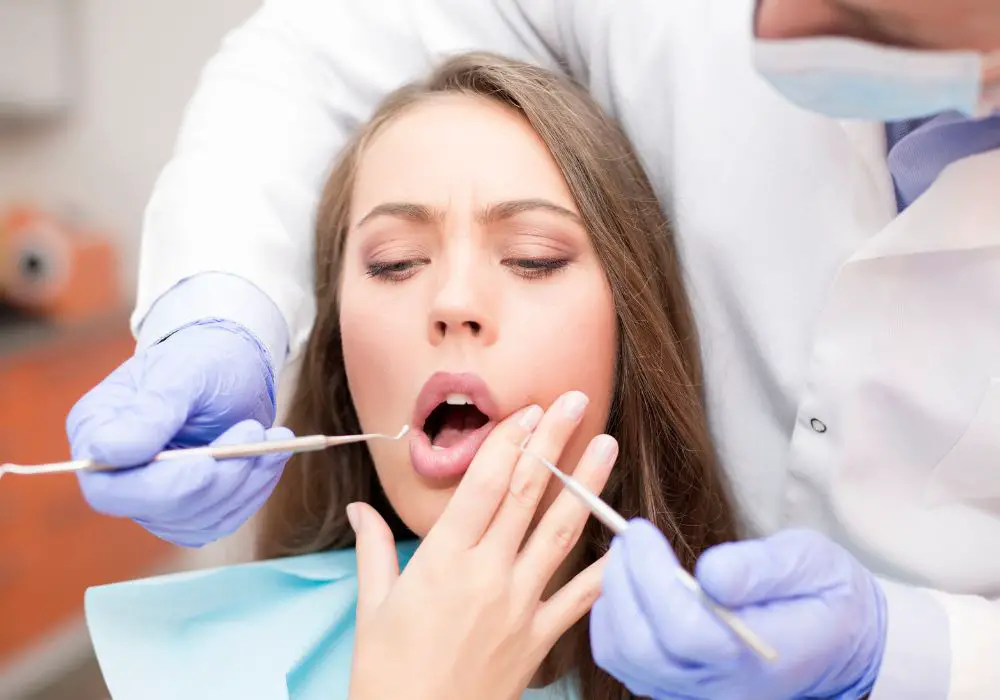
Regular dental check-ups are important to maintain good oral health. However, there are certain situations when you should consult your dentist outside of your regular check-ups. Here are some signs that you should schedule a dental appointment:
1. Tooth Pain
Tooth pain can be caused by a variety of issues, including cavities, gum disease, and tooth decay. If you experience persistent tooth pain, it’s important to schedule an appointment with your dentist. Your dentist can examine your teeth and determine the cause of your pain.
2. Bleeding Gums
Bleeding gums can be a sign of gum disease, which can lead to tooth loss if left untreated. If you notice that your gums are bleeding when you brush or floss, it’s important to schedule an appointment with your dentist.
3. Loose Teeth
Adult teeth should not be loose. If you notice that your teeth feel loose, it’s important to schedule an appointment with your dentist as soon as possible. Loose teeth can be a sign of gum disease or other serious dental issues.
4. Bad Breath
Bad breath can be caused by a variety of issues, including poor oral hygiene, gum disease, and tooth decay. If you experience persistent bad breath, it’s important to schedule an appointment with your dentist. Your dentist can examine your teeth and determine the cause of your bad breath.
5. Jaw Pain
Jaw pain can be caused by a variety of issues, including teeth grinding, TMJ, and gum disease. If you experience persistent jaw pain, it’s important to schedule an appointment with your dentist. Your dentist can examine your teeth and determine the cause of your jaw pain.
Remember, regular dental check-ups are important for maintaining good oral health. If you experience any of the above symptoms, it’s important to schedule an appointment with your dentist as soon as possible.
Frequently Asked Questions
Do your teeth have to touch when you smile?
No, your teeth do not have to touch when you smile. In fact, a natural smile usually involves a small gap between the upper and lower teeth. This gap is called “incisal embrasure” and it helps to create a more natural and aesthetically pleasing smile.
What is the correct resting position for teeth?
The correct resting position for teeth is with your lips together and your teeth slightly apart. This position allows your jaw muscles to relax and your teeth and jaw joints to rest. Keeping your teeth apart also helps to prevent unnecessary wear and tear on your teeth.
Why do my teeth only touch on one side?
It is normal for your teeth to touch on one side more than the other. This is because your jaw muscles and joints are not perfectly symmetrical. However, if your teeth only touch on one side and you experience pain or discomfort, you should consult a dentist to determine if there is an underlying issue that needs to be addressed.
Should your teeth be touching when resting?
No, your teeth should not be touching when resting. Keeping your teeth apart allows your jaw muscles to relax and your teeth and jaw joints to rest. This helps to prevent unnecessary wear and tear on your teeth and can also reduce the risk of developing temporomandibular joint (TMJ) disorders.
Should your teeth touch when you bite down?
Yes, your teeth should touch when you bite down. However, the amount of force applied should be balanced between your upper and lower teeth. If your teeth do not come together evenly when you bite down, you may need to see a dentist to determine if there is an issue with your bite.
Are your teeth supposed to touch during the day?
No, your teeth should not be touching constantly throughout the day. Keeping your teeth apart allows your jaw muscles to relax and your teeth and jaw joints to rest. However, your teeth may naturally come together briefly when you speak, swallow, or chew.


